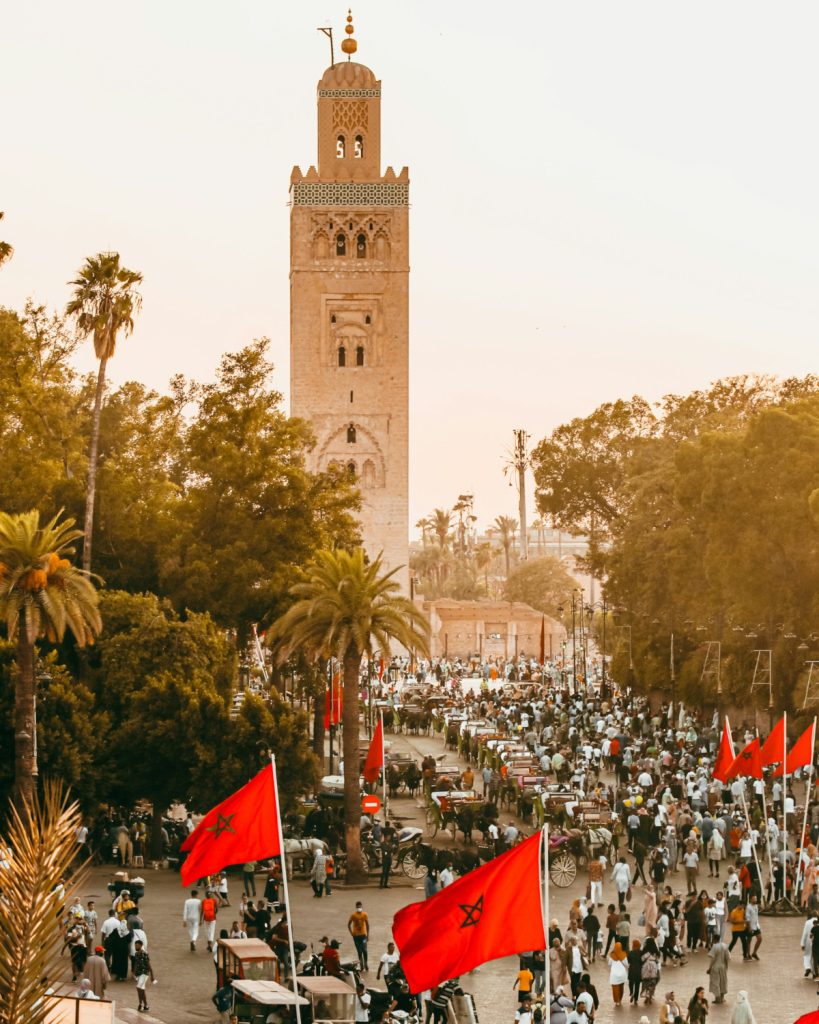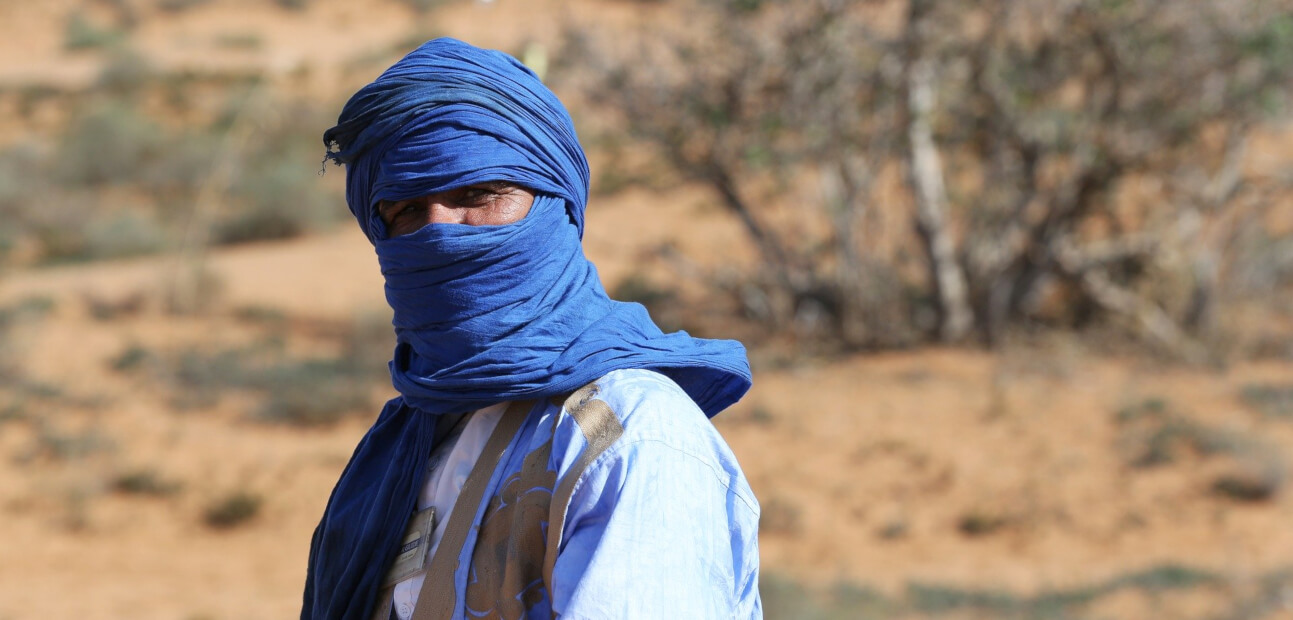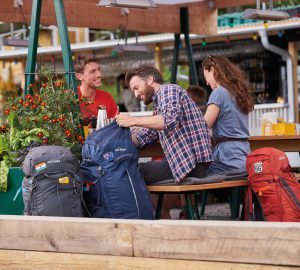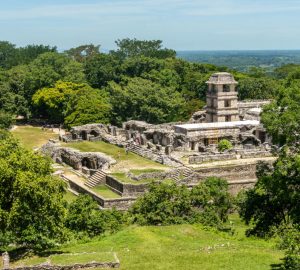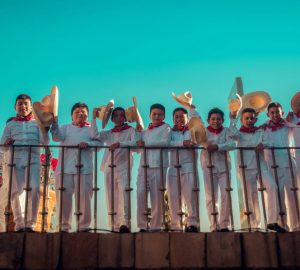A thousand and one nights, hectic bazaars, intricate souks, the wild Atlantic and the even wilder Atlas, desert and the world-famous oriental hospitality: Morocco is a place of longing for many, which continues to surprise and inspire even after several trips. We have put together a few tips so that you are well prepared for dealing with the country and its people on your trip to Morocco.
With multi-faceted cultural trips, adventurous trips into the desert or epic surfing vacations on the Atlantic coast, Morocco is one of the most versatile vacation destinations that can be reached from Europe in a short space of time. It’s no wonder that everyone from package tourists to solo travelers ends up there at some point. Despite the geographical proximity, however, there are a few cultural pitfalls in Morocco that you could unintentionally step into. That’s why this new edition of our cultural etiquette series provides an overview of the most important rules of conduct in Morocco.
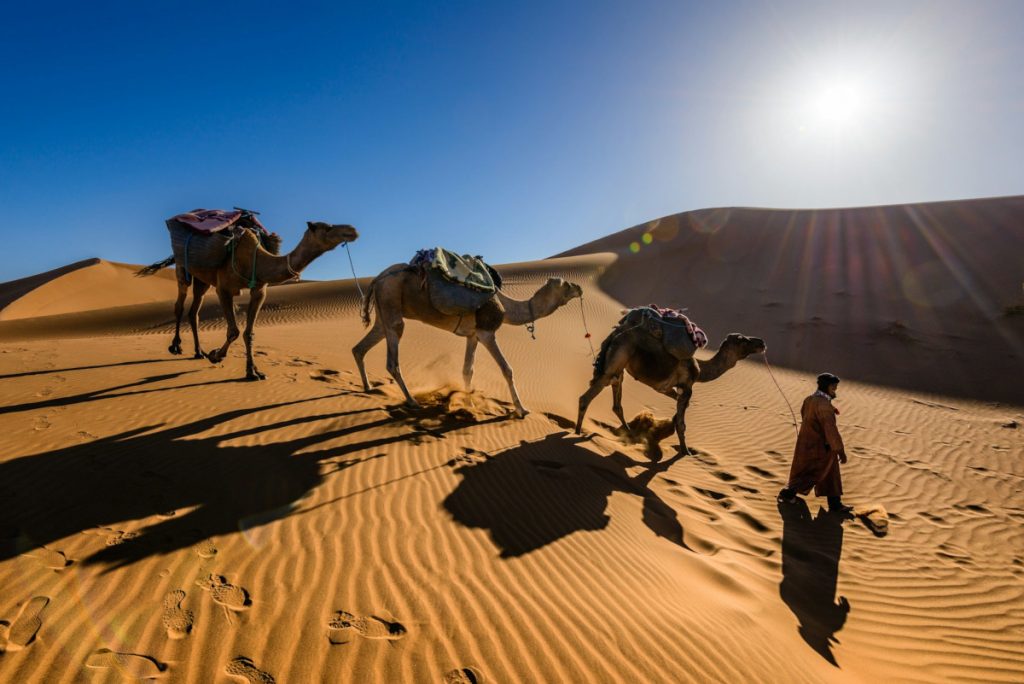
Cover up – travel clothing in Morocco
At almost any time of year, Morocco boasts wonderfully pleasant temperatures that might tempt you to pack only skimpy summer clothes. Unfortunately, you’ll have to rethink this: Morocco is an Islamic country where nobody walks around in short shorts or off-the-shoulder clothing. Long-sleeved, airy shirts and blouses as well as loose-fitting pants or skirts are the clothing of choice, not only for visits to the mosque, but also for strolling through the bazaar or touring the beautiful countryside.
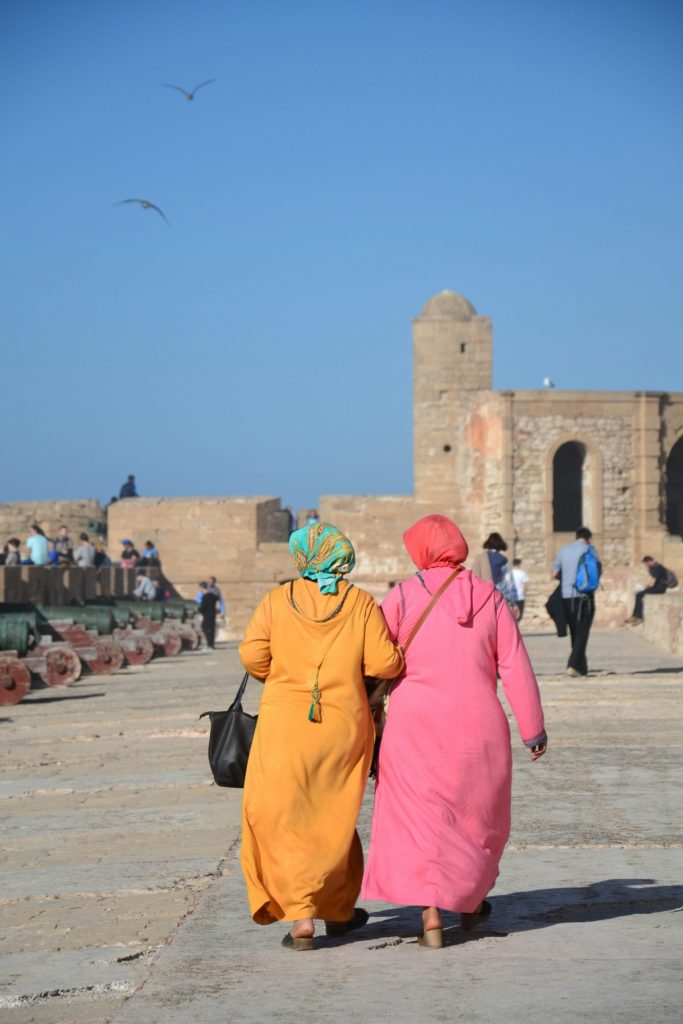
Shorts count as underwear and bras are obligatory. It is not compulsory for women to wear headscarves, except in mosques, where a loosely looped scarf also serves the purpose. You can wear normal swimwear on the beach, but topless sunbathing or even nudism are an absolute no-go.
Sounds unbearable? In fact, this way of dressing makes much more sense for the weather in Morocco than hot pants and tank tops. If you choose light, fluttering fabrics, you can regulate your body temperature much better and protect your skin from the sun. The “headscarf” mentioned above is also a great alternative to a sun hat.
INFO: You can find travel and safety information about Morocco on the website of the German Federal Foreign Office.
Kissing is forbidden – but only for couples
In Morocco, kissing, hugging and holding hands in public is generally an expression of mutual affection without a sexual context and is therefore commonplace between friends and relatives of the same sex. However, this behavior is not welcomed among lovers. Interaction between the sexes is generally observed almost exclusively in a family and business context. Sexuality is considered an absolutely private matter in Morocco. Even platonic friendships between men and women do not really exist.
Of course, Moroccans are aware that things are different in Western countries and therefore tolerate unmarried couples traveling together. But in Morocco, you should really only make out in the privacy of your hotel room – or perhaps at night on a secluded beach.
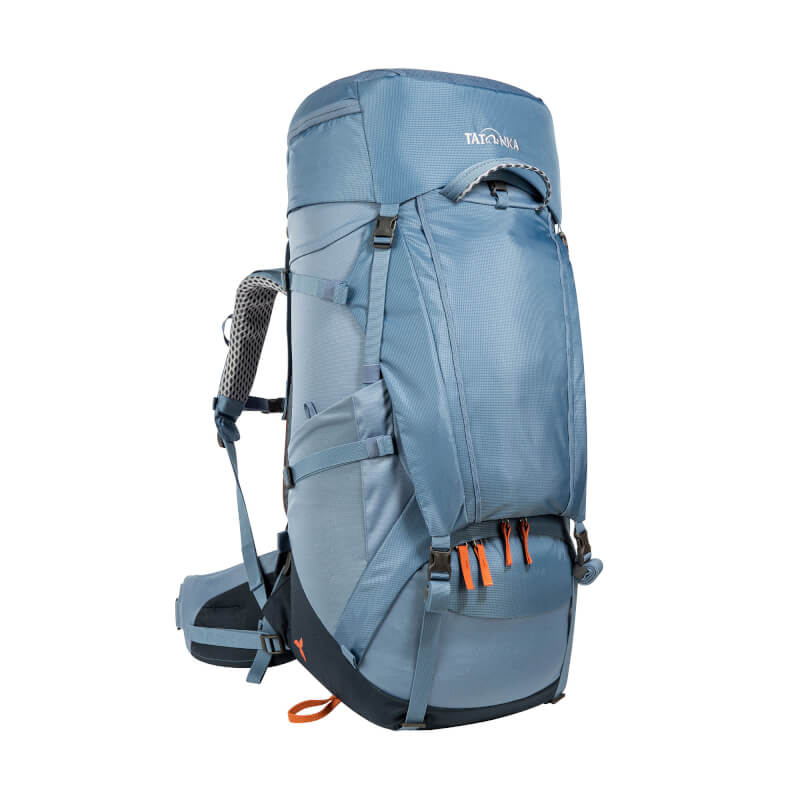
Our Tatonka Yukon with a large opening, lockable zipper and many other extras is the perfect travel backpack for your next adventure. Whether the Sahara, Atlas Mountains or Marrakech.
And the best thing is that the V2 carrying system relieves pressure on your spine. This means you can wear the Yukon over longer distances without any problems.
Photography only with permission
As in other travel destinations, respect is required when interacting with locals in Morocco. This means that you should ideally ask permission beforehand if you want to take photos of people. If an outstretched palm is then held out to you, it either means that you are not allowed to or that a baksheesh is due. This gesture is known as the five fingers of Fatima, which are supposed to ward off evil – in the best case scenario, you will never see them during your trip.
Bargaining is part of it
As in all Islamic countries, bargaining is an integral part of the culture. At bazaars, people haggle over everything – an unfamiliar situation for us Europeans who are used to supermarket labels and fixed discounts. The good news: you can learn to bargain! And it’s actually a lot of fun if you don’t take it too seriously. It won’t hurt anyone if you pay a little more for a nice scarf than you originally planned, but get a few oranges for free at the next stall because the trader had just as much fun haggling as you did.
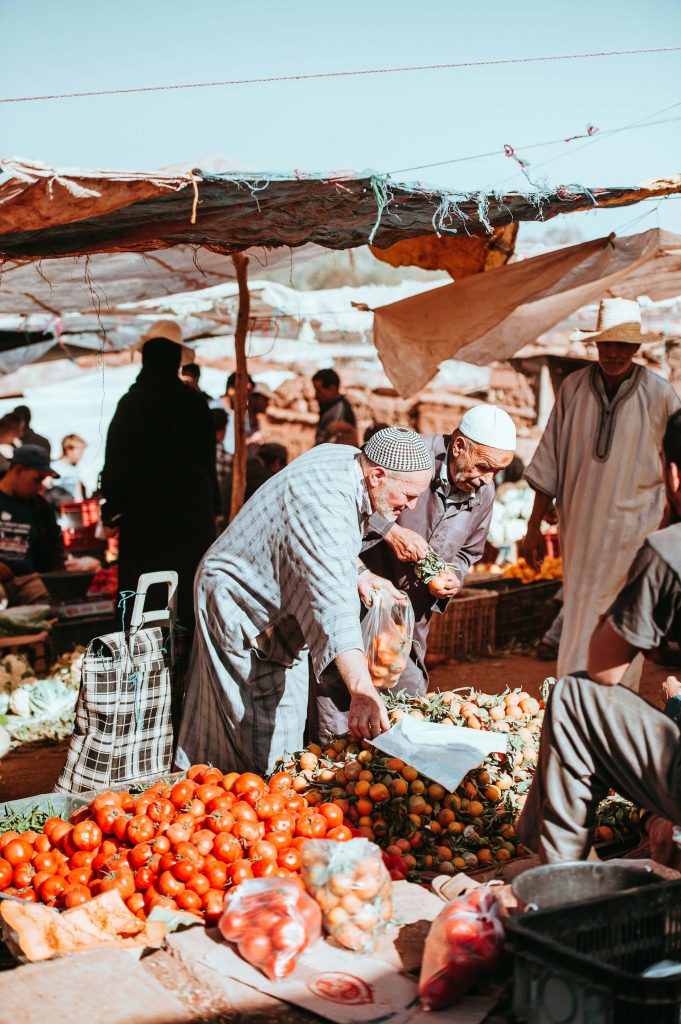
Rule of thumb: First think about what the item you’re about to ask for is worth to you. And then it’s best to start at a third of the price the retailer gives you and slowly haggle your way up with lots of winking, gesticulating and laughing. Never ask for a price if you have no concrete intention of buying. This is considered bad style.
Are you also interested in behavior in other countries? In our cultural etiquette series you will find tips on how to behave in other countries.
Baksheesh: When to give and when not to give?
Similar to trading, the art of giving baksheesh is also foreign to us. Tipping is one thing, but baksheesh is expected by Moroccans in so many more situations than just in restaurants or cabs. Someone shows you the way? Baksheesh. You take a photo of someone’s stall? Baksheesh. Someone acts as your tour guide without being asked and you don’t vehemently refuse? You know the score.
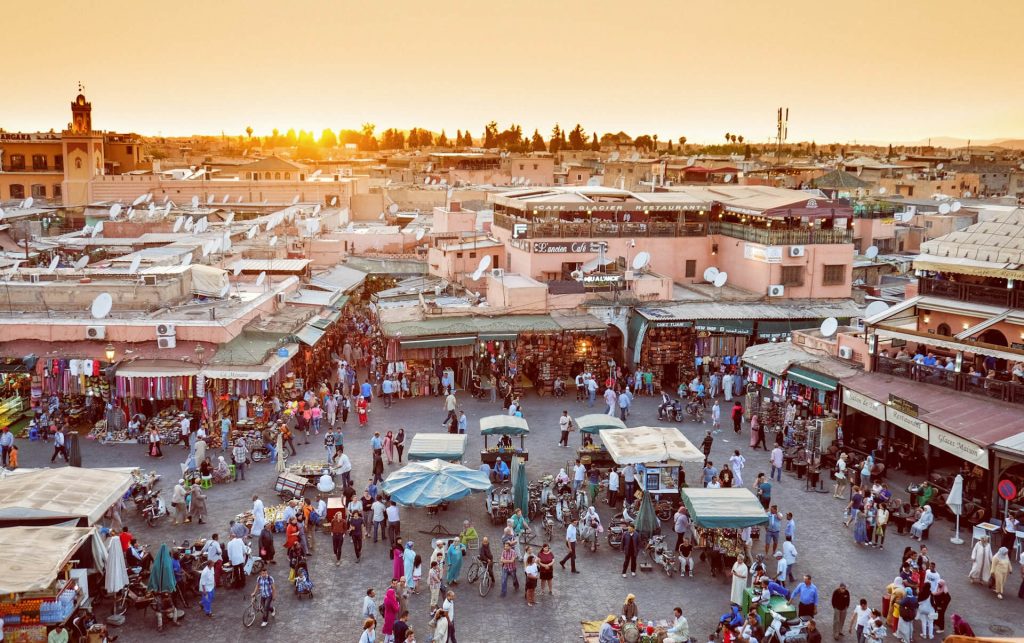
In Morocco, you need to develop a certain resilience towards people who want to “help” you. The best way to navigate is to have your smartphone in your hand and appear disoriented as rarely as possible. You should also always carry your own luggage if you don’t actually want to pay for the service. If someone in the alleyways of Marrakech tries to tell you that a passageway is closed and wants to show you another one – don’t believe them. They probably just want to earn a little extra money.
On the other hand, it is actually quite pleasant to accept this form of help from time to time and simply budget a little money for it. Many offers are quite genuine and can make traveling in a country like Morocco easier – and perhaps give you an insight or two into a culture that you wouldn’t have gotten with an overly stoic defensive attitude.
Fast facts about Morocco
- Official languages: Arabic, French and Tamazight
- Form of government: hereditary monarchy
- Population: approx. 34 million
- Capital: Rabat (approx. 554,000 inhabitants)
- Currency: Dirham (MAD)
- Time zone: UTC +1
- Best time to visit due to climate:
April to November (north / northwest)
September to May (Marrakech)
April to November (southwest)
October to April (south and south-east) - Climatically warmest period: June to September (Marrakech – inland)
- Telephone area code: +212
You can find everything you need to know about traveling in our ultimate travel guide.
